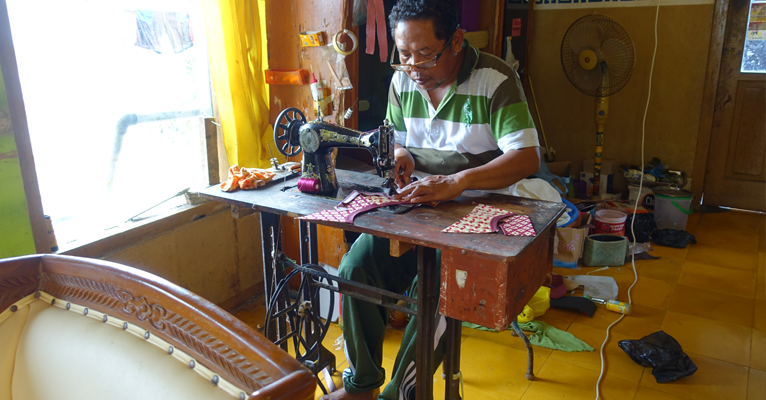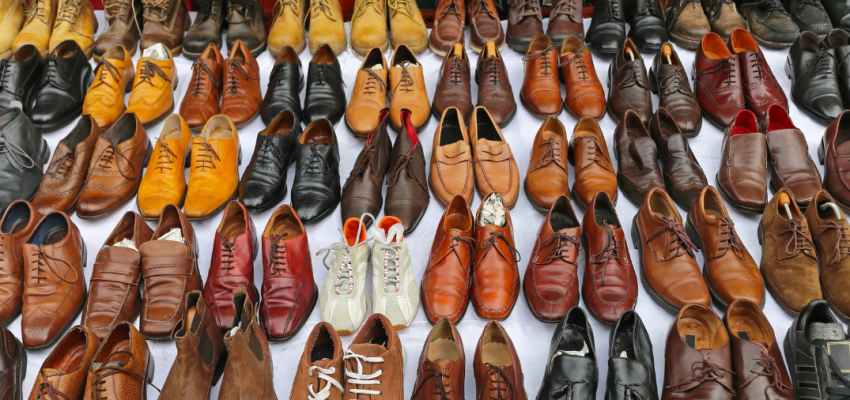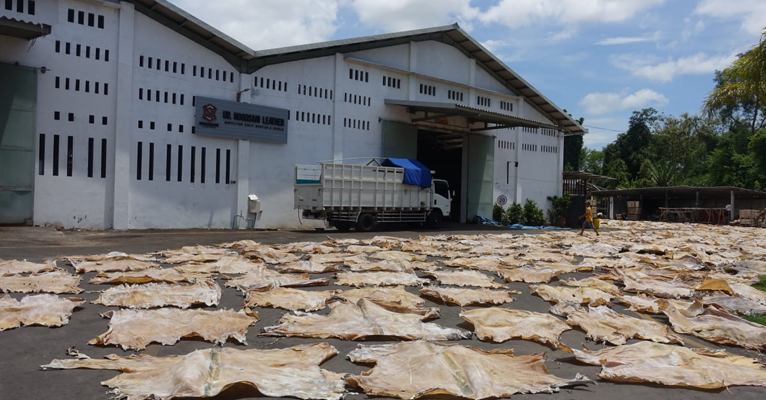Kompetisi Indonesia Footwear Creative Competition (IFCC) 2024 kembali menghadirkan talenta-talenta kreatif terbaik di bidang fotografi,…

Domestic Market Potential and Footwear Industry Recession Mitigation Strategy
As it is known that in the context of the footwear industry ecosystem the main objective of this activity is to further strengthen communication within and between the footwear industry sectors.
After the footwear industry was faced with the pressure of the covid pandemic, globally there is now a potential threat of a recession in 2023. Although it is still a prediction by experts where Indonesia will be affected, so we all better prepare a recession mitigation strategy so that we are better prepared and have resilience stronger.
The Ministry of Industry through the Directorate General of IKMA fully supports BPIPI's collaboration with the West Java Provincial Office of Industry and Trade and the West Java Provincial Footwear Industry Association in Customer Gathering Activities as an effort to bring together the potential of IKM with various supporting industries in order to support export performance.
Based on BPS data for 2021, there are 538 large and medium scale companies, with a potential domestic sales value of Rp. 15.6 trillion. Whereas for small and micro-scale IKM there are 53,362 business units spread across all potential areas of footwear IKM in Indonesia with a total employment of 247,843 TK.
With great potential for absorption of labor and capital, in 2021 the national footwear industry will be able to produce 1.083 billion pairs of footwear, an increase compared to 2020 of 1.036 billion pairs (ranked 4th in the world) and managed to export 427 million pairs, an increase compared to 2020 366 million pairs (ranked 3rd in the world).
Meskipun tahun 2023 dihantui kembali resesi ekonomi dunia, namun pemerintah dalam hal ini Kementerian Perindustrian sangat yakin industri alas kaki nasional mampu bertahan. Pemerintah telah menyiapkan kebijakan fiskal maupun non fiskal sebagai upaya melakukan mitigasi resesi.
Salah satu program kemitraan yang di dorong adalah strategi kolaborasi. Berbagi platform (sharing) with business partners is the best way when we can't do it alone, incl sharing value with other SMIs being the best choice when we have limitations.
Including other non-fiscal policies is a stimulus for export-oriented IKM in the form of ease of importing certain materials for export purposes, including facilitating the arrangement of KITE and Commodity Balances for IKM. The priority for licensing integration starts from the processing of NIB, OSS including SIINAS which is made easier and accelerated, especially cross-sectoral permits through industry assistance. Facilitating and accelerating footwear IKMs in obtaining IPR certificates, TKDN certificates, registration of e-catalogs and quality systems (ISO) through industry facilitation programs. As well as opening opportunities for new/non-traditional export markets to Middle Eastern, South Asian and African countries.
Based on data from BPS, the export-import performance of the footwear industry shows a positive signal. In 2022 quarter 3, footwear exports amounted to USD 5.949 billion, an increase compared to 2021 quarter 3 (USD 4.388 billion). Whereas in 2022 the third quarter, footwear imports amounted to USD 758 million, an increase compared to 2021 quarter 3 (USD 511 million). Even though there is a potential for a recession, in 2022 quarter 3 the trade balance of the footwear industry is a surplus of USD 5.191 billion.
Ekosistem industri alas kaki nasional sangat dinamis, maka strategi penting berikutnya adalah pro aktif. Kementerian Perindustrian mendorong IKM untuk melakukan inovasi agar lebih kompetitif saat menghadapi resesi.
The shared priority at the moment is to strengthen the footwear industry ecosystem, so that every industrial entity, whether small, medium and large, can give each other life so that domestic suppy chain strong growth, the growth of the footwear supporting industry, the dominance of local brands in the domestic market and the increase in SMEs that are upgrading. With a strong footwear industry ecosystem, the national footwear industry will be more independent and strong. Thank you



